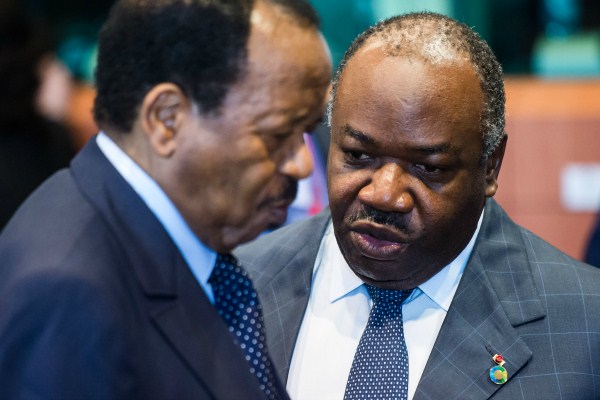Gabon hardly ever makes headlines outside of the French-language press, so it’s little surprise that the storm brewing over this small, oil-rich country on the west coast of Central Africa for the past few months has received little attention. Yet all indicators point to political turbulence ahead in the run-up to Gabon’s next presidential election, which is scheduled for mid-2016, given a series of protests and strikes, including a teachers’ union strike that has paralyzed Gabon’s education system since February. The growing social unrest has affected Gabon’s economy, with its health, petroleum and telecommunications sectors all feeling the impact; in late February, a strike by Gabon Telecom employees cut the country off from the Internet for 48 hours.
More strikes are expected after the government’s half-hearted response to union grievances so far: a proposed new pay scale, instead of tripling the minimum wage to roughly $490 a month and reforming pensions as workers have demanded. Highly dependent on oil exports and the largest employer for salaried workers, the government is unwilling to increase expenditures given the long, ongoing slump in global oil prices. Its inability to placate workers’ demands in the current economic climate has contributed to the sense of malaise in Gabon ahead of an increasingly uncertain electoral contest.
Incumbent President Ali Bongo Ondimba, who was elected in a contested poll in 2009, looks set to try and preserve family rule at all costs; Bongo succeeded his father, Omar Bongo Ondimba, who had ruled Gabon since 1967. However, the political opposition led by the Front Uni de l’Opposition pour l’Alternance (FUOPA), a coalition of political parties, is trying to capitalize on the unrest, with the hope of finally unseating the Bongo dynasty.

